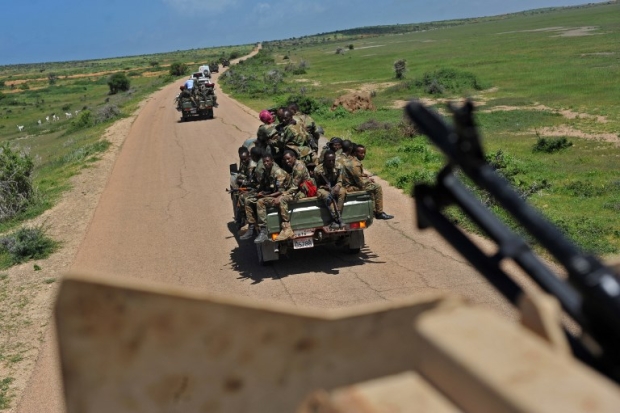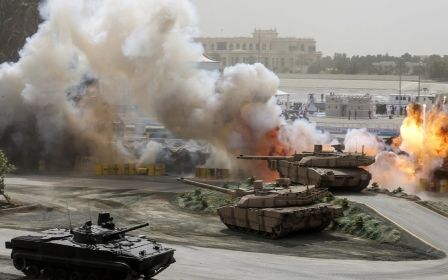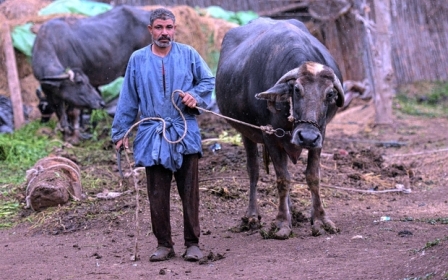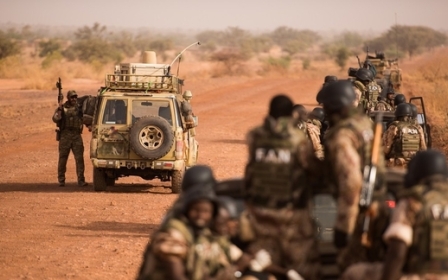Gulf states in dangerous scramble for Africa
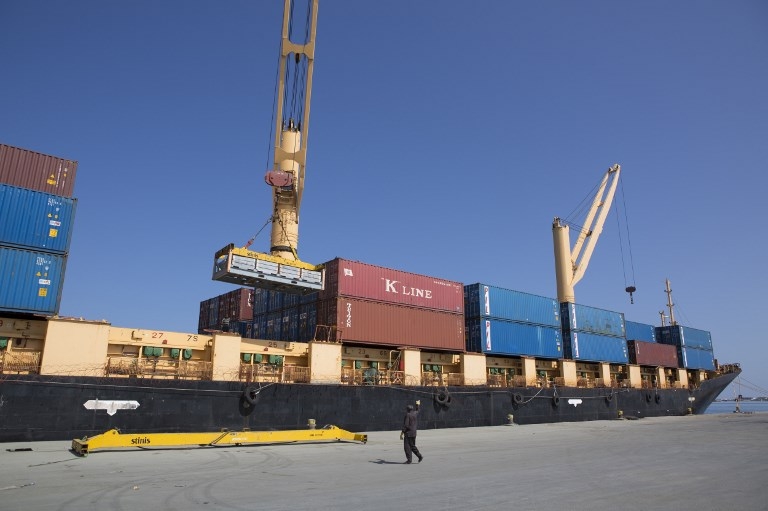
The Horn of Africa might be most infamous for the pirates that lurk along its coastline, capturing oil tankers and holding their crews to ransom. Yet the region is rapidly assuming global political significance, its internal tensions both fuelling and exacerbating a race among foreign powers to gain influence.
Observers worry that this modern-day scramble for Africa could have dangerous consequences not only for the region, but for other key powers, from the Middle East to the US.
Somalia has now emerged as a proxy battleground for the UAE and Qatar
According to a new report from South Africa’s Institute for Security Studies (ISS), Somalia is being increasingly battered not only by the threat of pirates and the extremist group al-Shabab, but also by the growing menace of meddling from Middle Eastern actors - notably from the Gulf.
If Somalia is to withstand so much added pressure, the ISS says, it must focus on achieving internal unification, or run the risk of losing out on any benefits of new investments and other activities. It's a tall order for many states, but especially for one like Somalia.
Sworn enemies
Indeed, in a process that has remained largely under the radar until recently, Somalia has now emerged as a proxy battleground for the UAE and Qatar. The two countries have been sworn enemies since Abu Dhabi boycotted Doha last year, and now they are both pumping money into Somalia, but backing opposing sides. Qatar has supported the Somali government with nearly $400m of aid, while its ally, Turkey, has opened a $50m military base with Mogadishu’s blessing.
In response, the UAE has thrown its weight behind the would-be secessionists of Somaliland, establishing its own military facility as part of a $400m joint venture in the port city of Berbera, despite vehement protests from Somali ministers. A similar squabble is taking place in Eritrea, but in reverse; the UAE supports the official government and established another base, while Qatar is accused of supporting opposition radicals.
The Horn has witnessed nine major internal or external conflicts in the last 30 years, creating a political vacuum that has helped nurture groups such as al-Shabab
Not surprisingly, the intra-Gulf dispute has had major consequences for nations in the region, notably Djibouti, which has been forced to relinquish some of its longstanding alliances and look elsewhere for investment. Earlier this year, Djibouti’s authoritarian president, Ismael Omar Guelleh, thwarted Dubai’s DP World by nationalising the Doraleh Container Terminal.
The likely benefactor is China, which holds 91 percent of Djibouti’s debt and recently opened its first overseas military base in the country. The development is uncomfortable not only for the UAE, but also for the US, which runs Camp Lemonnier - its only military installation in Africa - a few miles away. According to General Thomas Waldhauser, the commander of US forces in Africa, China could potentially restrict Camp Lemonnier’s ability to access key supplies and the US Navy’s efforts to refuel in Djibouti.
Strategic location
Why are all these states rushing to gain a foothold in the area? Location, for one, provides a clue. The Horn sits at the bottom of the Red Sea, a key artery of international commerce. When the sea gets to Djibouti, it funnels into the Bab al-Mandeb choke point, which Alexander Rondos, the EU’s special representative for the Horn, has described as “the jugular vein of trade” between East and West. Around four percent of all global oil trade passes through here, so it pays for major trading nations to secure a prime vantage point.
There’s also plenty of oil buried beneath the Horn itself. Somalia is renowned for its untapped reserves, particularly in the semi-autonomous region of Puntland, which, like Somaliland, has benefited from significant UAE investment.
Ethiopia has just begun its own crude oil extraction and is also thought to be sitting on huge reserves of gold, like Djibouti. With vast infrastructure projects taking shape, such as the Grand Renaissance Dam in Ethiopia, international powers have every reason to try to deepen their engagement in the region.
With vast infrastructure projects taking shape, such as the Grand Renaissance Dam in Ethiopia, international powers have every reason to try to deepen their engagement in the region
Despite these advantages, however, the Horn remains a political powder keg, locked in a state of permanent unrest due to its patchwork of ethnic groups and the migratory shifts driven by famine and population growth.
The Horn has witnessed nine major internal or external conflicts in the last 30 years, creating a political vacuum that has helped nurture groups such as al-Shabab.
The picture is further darkened by the civil war in neighbouring Yemen, a proxy for the regional power struggle between the two most powerful Arab states, Saudi Arabia and Iran - a struggle that places the UAE and Qatar on opposite sides.
High hurdles ahead
On the bright side, in response to growing encroachment from the Gulf and other powerful states, in recent months there have been signs that the Horn’s member states are trying to rise above their political turmoil and cast off the shackles of clientelism.
Last month, Ethiopia and Somalia, after years of tensions, pledged to build bilateral relations and join forces against al-Shabab. More significantly for international observers, they also reportedly agreed to invest in four seaports along their coastline - the kind of partnership that will be critical if these countries are to take better advantage of their own strategic assets.
The question now is whether countries in the Horn will continue such efforts, or whether they will be smothered by the feverish competition among foreign powers. Given the poverty, security issues and numerous other challenges faced by Somalia and its neighbours, the hurdles are undoubtedly high.
Already, reports from Mogadishu suggest that the parliament has split along pro-Emirati and pro-Qatari lines, and divisions between the government and its regional rivals have hardened.
The question now is whether Somalia will continue recent efforts to bridge internal divides in its own government and unite against attempts to turn it into a proxy state - or succumb to its already longstanding divisions.
- Joseph Benzekri is a Tunisian small business owner based in Paris who has worked in the agro-export business for over two decades. He is also active in North African civil society as an advocate for increased regional integration. You can follow him on Twitter @JosephBenzekri
The views expressed in this article belong to the author and do not necessarily reflect the editorial policy of Middle East Eye.
Photo: A man helps load a cargo ship in the Port of Berbera in Somaliland on 5 December 2015 (AFP)
New MEE newsletter: Jerusalem Dispatch
Sign up to get the latest insights and analysis on Israel-Palestine, alongside Turkey Unpacked and other MEE newsletters
Middle East Eye delivers independent and unrivalled coverage and analysis of the Middle East, North Africa and beyond. To learn more about republishing this content and the associated fees, please fill out this form. More about MEE can be found here.



